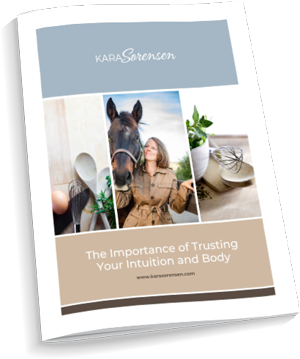 The photo here is for dramatic effect. I’m guessing she’s smiling as she hasn’t really eaten any ice cream yet. If she had, she’d probably be on her way to a bloated and unhappy sugar coma, but she doesn’t have the look of that does she?
The photo here is for dramatic effect. I’m guessing she’s smiling as she hasn’t really eaten any ice cream yet. If she had, she’d probably be on her way to a bloated and unhappy sugar coma, but she doesn’t have the look of that does she?
If she were really that happy and peaceful, she would not be surrounded by ice cream, right? She’d probably be doing something else, something more fun.
But enough of that, this post is to open the discussion of the food and mood connection. Why is this even important? Well, because, like it or not, we’re all using food to adjust our mood and energy, whether we know about it or not. It’s automatic, that is, until we become aware of the process.
Energy and Mood Follow Blood Sugar
Energy and Mood follow blood sugar, and our bodies are constantly sending us signals to help us stimulate our mood and maintain or adjust our blood sugar. How functional or dysfunctional this process is depends in part on what program your body is running. Is it running the quick fix program of:
‘Sugar, Caffeine or Carbs are the ONLY way I can get ENERGY and feel SATISFIED?’
Or is it running the program of:
‘There are so many ways to positively and sustainably adjust my mood and energy with or without food, and slower burning foods simply supply the building blocks to keep me more balanced, but they are not the focus’
Until your programming is changed (there are many ways to do this) you may not even know you’ve been adjusting your mood and energy with food. It’s automatic, it’s usually not conscious, it’s a survival mechanism that’s served humans for the ages.
Sugar, Carbs and Caffeine are some of the substances that can quickly change mood and energy. The problem enters, as there’s a quick crash that follows, setting us up for cravings for more, as we need our next hit of happy brain chemicals.
But, what if there were a better way to adjust and regulate your mood, and food was just the long burning fuel to supply all the co-factors and building blocks your body and brain needs to produce all the happy chemicals you need? What if food was eaten for nourishment and pleasure instead of for a mood fix?
A Tool for Profound and Lasting Change
Acupressure is the quickest way I know to make this change in a sustainable way. There are many ways to make this change, but this is just the quickest, least expensive and longest lasting. It’s not for everyone either, it’s for those who really want to get to the bottom of things and be free of them. Not everyone is ready for that.
So, what happens when you’ve come to realize that your cravings or habits with carbs, caffeine, or sugar are not getting you the happy chemicals it once promised or it’s causing health problems and you want to make a change? Well, when you hold Acupressure points, your body has the opportunity to shift paradigms. It’s not that you won’t be able to eat Sugar, Caffeine or Carbs, but if you do, you’ll have choice about it, you won’t ‘have to have it!’ You also won’t obsess about it if you don’t have it, because you’re not filling a need with that food, it’s not necessary to eat it to feel a shift in your mood.
Space between you and your choices opens up and it becomes a peaceful decision when you eat instead of a panicky, driven one. If you have some, you’re less likely to overeat or lose control, and this feels natural, though odd at first. It’s sort of like having broken a leg, and once the cast is off, feeling a strange absence as you’ve become so used to it, yet happy to be back to normal without it.
The end result of this shift, once it’s happened, is that you’ll have many ways to feel good as your neuropathways have opened up. You won’t have to go to food to feel good. In fact, if you do have food for pleasure and/or nourishment, you’ll feel:
• satisfied sooner
• an absence of guilt or shame
• fewer peaks and valleys of mood and energy
• able to stop at a very reasonable amount
Why? Because your old outdated programming has been updated, and you make this food decision as an adult in the present moment, instead of being sent so many signals that don’t serve you any more. It’s not magic, it’s just bringing you back to your natural baseline. This natural baseline is your birthright, it’s yours for the re-taking.
So, you may already be aware of the connection between food and your mood. You may wonder if I can help you find this new (to you) way of being. Or, you may be skeptical and wonder if any of this makes sense to you.
Homework Anyone?
If you’re the latter, I invite you to do an exercise at home:
Keep a food journal for a day, three days or five. The more the better, but hey, do it for one day if that’s your willingness. Write down what you eat and drink, when you eat it, how you’re feeling before and after you eat. Monitor your mood throughout the day and see what’s going on between food and your mood. What happens when you go too long without food or skip breakfast, etc.? Just notice. Maybe you won’t be surprised, but maybe you will. Many patients tell me it’s illuminating to keep a food journal, and I hope it is for you.
And until next time, may your mood and energy feel good to you!
If you’d like tips for making peace with food and your weight, sign up to the right, and I’ll send it straight to your inbox twice a month and it’s free!
Yours in Health,



